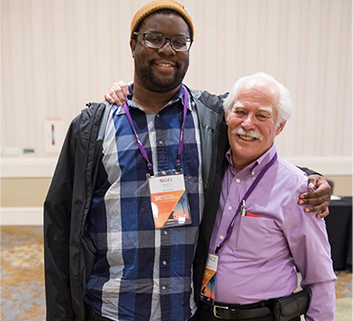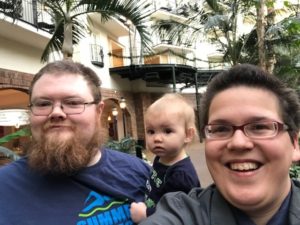In 2019, the NCE Steering Committee will welcome new leadership and new members. The steering committee serves as NCE’s governing body and is responsible for supporting the development and implementation of a robust professional development program for executives, management staff, and volunteer leaders in The Arc. Please join us in thanking Carrie Hobbs Guiden and the 2017-2018 committee for their time, energy, creativity, and commitment — and please welcome your 2019-2020 committee members:
Chairperson: Karen Shoemaker, Executive Director, The Arc of Lehigh and Northampton Counties, PA
First Vice-Chair: Chris Stewart, President/Chief Executive Officer, The Arc of Central Alabama, AL
Second Vice-Chair: Kim Dodson, Executive Director, The Arc of Indiana, IN
Immediate Past Chair: Carrie Hobbs Guiden, Executive Director, The Arc of Tennessee, TN
Regional Representatives
Region 1: John Nash, Executive Director, The Arc of North Carolina, NC
Region 2: Jean Phelps, Chief Executive Officer, LifeLinks/The Arc of Greater Lowell, MA
Region 3: Lori Opiela, Vice President for Day and Employment Services, United Cerebral Palsy Seguin of Greater Chicago, IL
Region 4: Kevin Fish, Executive Director, The Arc of Sedgwick County, KS
Region 5: Robert Malone, Executive Director, The Arc of Prince George’s County, MD
Region 6: Jon Meyers, State Director, The Arc of Arizona, AZ
At Large Members
Frank Adu, Chief Executive Officer, The Arc Middlesex County, NJ
Leslie Green, Chief Executive Officer, Stonebelt Arc, IN
Teri Hawthorne, Executive Director, The Arc of Greater Beaumont, TX
Mark Keeley, President and CEO, St. Louis Arc, MO
Charity Moore, Executive Director, The Arc of Laramie County, WY
Stanfort Perry, Executive Director, AHRC Nassau County, NY
Melanie Soto, Executive Director, Y.E.S. The Arc, AZ
Mary Van Haneghan, Chief Executive Officer, The Arc of the Capital Area, TX
Regional Key
Region 1: AL, FL, GA, MS, NC, SC
Region 2: CT, MA, ME, NH, NY, RI, VT
Region 3: IA, IL, IN, MI, MN, WI
Region 4: AR, KS, KY, LA, MO, ND, NE, OK, SD, TN, TX, WY
Region 5: DC, DE, MD, NJ, OH, PA, VA, WV
Region 6: AK, AZ, CA, CO, HI, ID, NM, MT, OR, UT, WA




 On November 7th, I got to go to Tennessee for the first time for The Arc’s National Convention! It was a blast. When I found I won the scholarship, my husband and I saved up so he and my daughter got to come with me and see the sights.
On November 7th, I got to go to Tennessee for the first time for The Arc’s National Convention! It was a blast. When I found I won the scholarship, my husband and I saved up so he and my daughter got to come with me and see the sights.






